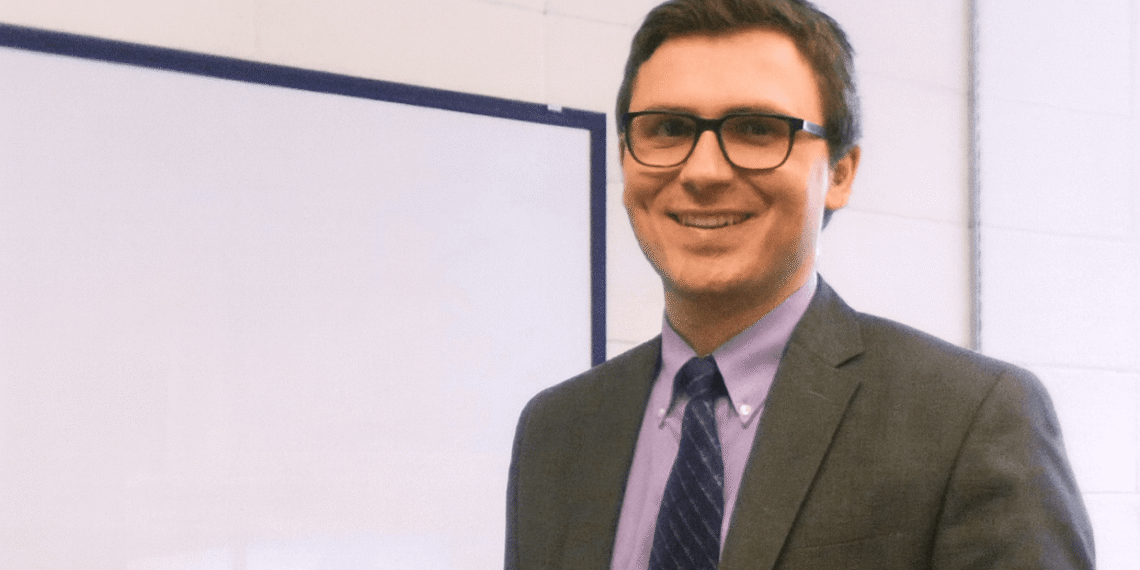In an interview with ECPS, Dr. Cristian Cantir (Oakland University) described Moldova’s 2025 parliamentary elections as “a major win for the European Union and a major defeat for the Kremlin.” Despite massive Russian interference—including vote-buying, cryptocurrency transfers, and efforts to incite unrest—Moldovan institutions responded with unprecedented consistency, demonstrating what Dr. Cantir calls a “confirmation of Moldova’s democratic resilience.” Yet, he warns that Moscow remains influential through populist narratives exploiting poverty and weak institutions. The results, he argues, reflect both the enduring popularity of EU integration and the failures of pro-Russian opposition parties. For Dr. Cantir, Moldova offers a striking example of how Russian influence faces diminishing returns when met with institutional strength and sustained Western support.
Interview by Selcuk Gultasli
The outcome of Moldova’s 2025 parliamentary elections has been widely interpreted as a defining moment in the country’s European trajectory and its long struggle to resist Russian influence. In an interview with the European Center for Populism Studies (ECPS), Dr. Cristian Cantir, Associate Professor of Political Science at Oakland University, framed the results in stark geopolitical terms: “At a macro level, I would say this election represents a major win for the European Union and a major defeat for the Kremlin. I think it’s fair to frame it in those terms as a general way of understanding what happened.”
Dr. Cantir’s assessment reflects not only the electoral success of the pro-European Action and Solidarity Party (PAS), but also the broader resilience of Moldova’s democratic institutions in the face of Moscow’s sustained interference campaigns. International observers judged the elections to be generally free and fair, even amid bomb threats, electoral violations, and widespread attempts at corruption. As Dr. Cantir explains, this points to a “confirmation of Moldova’s democratic resilience,” if not yet full consolidation, as state institutions and law enforcement demonstrated an increased capacity to respond to hybrid threats.
Russia’s interference toolkit—long tested in Moldova—appeared less effective in this cycle. The Kremlin poured more resources into the effort, funding political actors, experimenting with cryptocurrency transfers, and attempting to stoke unrest. Yet, Dr. Cantir argues, these strategies delivered “diminishing returns” in a political environment where institutions had grown more proactive. “Moscow has been somewhat taken aback by the extent to which Moldovan institutions have now responded in such a consistent way to Russian interference,” he observes. The shift suggests that the Kremlin’s approach is increasingly constrained by its own reliance on disinformation and narratives fed by loyal pro-Russian politicians, which often fail to reflect the realities of Moldovan society. As Dr. Cantir notes, “some of the claims you see in Russian propaganda are so laughable and rudimentary… you wonder whether they actually believe them, because they don’t even work as propaganda.”
Still, Russia remains a formidable actor in Moldova’s domestic politics. Populist narratives that exploit socioeconomic hardship, corruption, and weak institutions continue to resonate with segments of the population, leaving Moldova’s pro-European course vulnerable to authoritarian retrenchment. Dr. Cantir highlights the need for PAS and other pro-EU forces to demonstrate tangible benefits of integration to disengaged citizens, warning that otherwise they may fall “much more easily to populist messaging” that is Eurosceptic and pro-Russian in nature.
Ultimately, the Moldovan case illustrates both the persistence and limitations of Russia’s hybrid influence operations in the post-Soviet space. Unlike Ukraine or Georgia, where Moscow has resorted to military force, Moldova demonstrates how resilience is possible when domestic institutions respond effectively and Western partners provide consistent support. As Dr. Cantir emphasizes, this election represents more than just a partisan victory—it is a symbolic moment of geopolitical realignment: a triumph for Europe, and a setback for the Kremlin.
Here is the transcript of our interview with Associate Professor Cristian Cantir, lightly edited for clarity and readability.
Moldova’s Elections Confirm Democratic Resilience
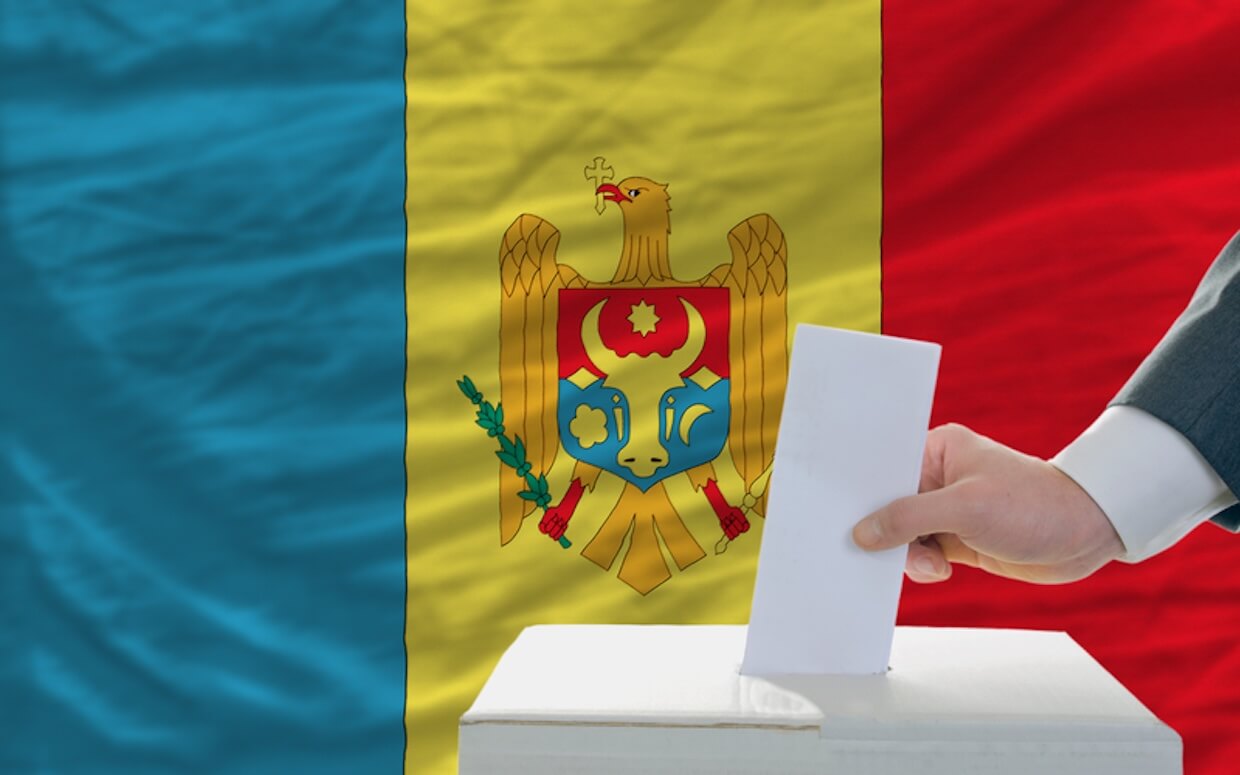
Professor Cristian Cantir, thank you very much for joining our interview series. Let me start right away with the first question: How would you characterize the broader significance of Moldova’s 2025 parliamentary elections, particularly in the light of the pro-European Action and Solidarity Party’s (PAS) ability to withstand unprecedented Russian interference campaigns? To what extent can this outcome be read as a genuine consolidation of Moldova’s democratic resilience, and to what degree is it contingent upon extraordinary external support from the EU and its allies?
Assoc. Prof. Cristian Cantir: Thank you very much for inviting me. It’s a pleasure to be here, and I’m always glad to talk about Moldova—a topic that doesn’t usually get much attention in international affairs. At a macro level, I would say this election represents a major win for the European Union and a major defeat for the Kremlin. I think it’s fair to frame it in those terms as a general way of understanding what happened.
To the extent that it was generally a free and fair election, according to most international observers—even in the face of massive Russian interference—it was consistent with Moldova’s tradition of holding competitive elections since independence. I would take this as a positive sign of the relative health of Moldovan democracy. The process was conducted competently, with electoral authorities and law enforcement responding promptly to challenges, including bomb threats, reported violations, and instances of electoral corruption. From that standpoint, it serves as a solid example—not necessarily a consolidation, but certainly a confirmation—of Moldova’s democratic resilience. Of course, there remain significant challenges to Moldova’s democratic consolidation, but overall the outcome is good news for the country’s democracy.
I do think the election results can be partly attributed to external EU support, but it’s important to refine this point by highlighting one individual in particular—Moldovan President Maia Sandu. Sandu is a unique figure, not only in Moldova’s political history but also in the broader Central and Eastern European context. She has consistently been a popular, anti-corruption, reformist, pro-European leader. Many of the criticisms and attacks directed at her by the pro-Russian opposition have not gained much traction. She has remained highly popular within Moldova, due in part to her strong international reputation, especially among EU politicians. In this sense, when we talk about external influence, it is really a combination of two factors: Sandu’s personal popularity and the EU’s admiration for, and support of, her during this campaign. That said, I would not be so confident in giving the ruling party, PAS, too much credit for the victory. There remain fundamental issues with PAS as a pro-EU force, which we can also discuss further.
Moldovans Voted for Europe, Not PAS
Do the results primarily reflect a deepening consolidation of Moldova’s pro-European trajectory, or are they better understood as a rejection of entrenched pro-Russian elites such as Igor Dodon and his allies? In other words, should we interpret the outcome as an ideological commitment to Europe or as an electoral repudiation of discredited political actors?
Assoc. Prof. Cristian Cantir: We could start by noting that EU integration is genuinely popular with a majority of the Moldovan population. Most polls confirm this, and even the 2024 referendum—though decided by a razor-thin margin—pointed to its broad appeal. That narrow margin can be attributed, at least in part, to vote-buying allegations and to the pro-Russian opposition framing the referendum as a judgment on PAS, the ruling party, rather than on the EU itself. Since PAS has become almost synonymous with the pro-EU position, this image has limited the viability of any other pro-European force. As a result, most pro-EU Moldovans voted for PAS, even if they were frustrated with the party’s slow response to major challenges such as poverty or judicial reform. To some extent, then, the outcome reflects support for EU integration combined with the absence of credible alternatives. Much of the vote was strategic: it did not necessarily indicate satisfaction with PAS as a party or with its performance, but rather the lack of any real choice.
The other parties in the election can also be faulted for failing to develop a narrative that offered a genuine alternative to PAS. Many claimed to support some degree of EU integration—even pro-Russian parties promised to negotiate more with Brussels. They tried to emphasize sovereignty and introduced socially conservative themes aimed at countering what they viewed as the EU’s liberal values. Yet this did not resonate with most Moldovans, as it came across as vague messaging—essentially, “we will slow down EU integration,” without explaining what that would mean or why it was necessary. By contrast, tangible benefits such as visa-free travel or lower roaming fees—everyday concerns tied directly to EU integration—proved far more compelling. As a result, the opposition’s alternative was unclear and largely reduced to a promise of “we are not the current political elites.”
The results, therefore, can be attributed both to the continuing popularity of the EU and to the weakness of the opposition leaders. Their campaigns were driven more by resentment of the ruling party and calls to “purge the system,” or what they called “the regime,” than by any proactive or positive electoral platform.
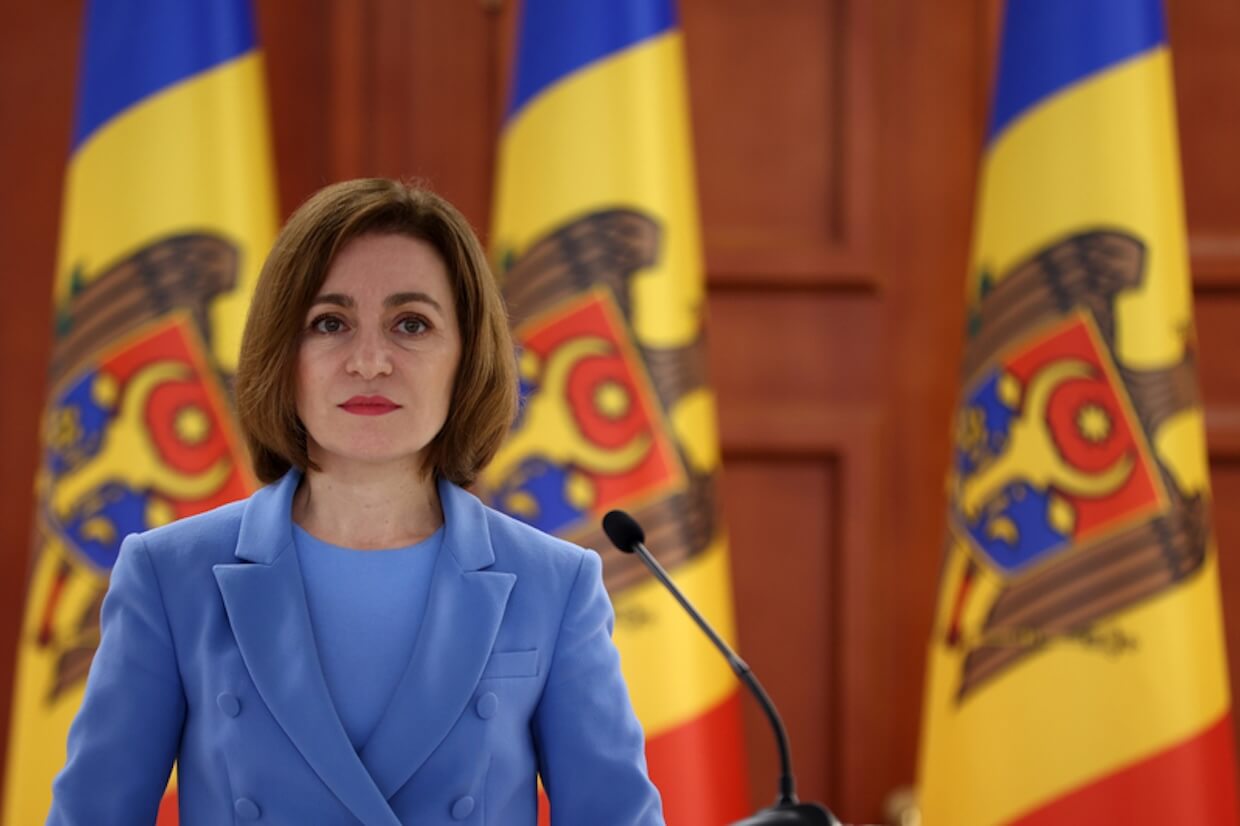
Diaspora Has Become the Backbone of Moldova’s Pro-EU Course
The Moldovan diaspora appears to have played a decisive role in shaping the electoral outcome. How should we understand the implications of this phenomenon for the transnationalization of Moldovan democracy, particularly regarding questions of sovereignty, external leverage, and the construction of a political community that extends well beyond national borders?
Assoc. Prof. Cristian Cantir: The question of the Moldovan diaspora is particularly interesting, as it has been essential in consolidating Moldova’s pro-EU course, especially in recent years. Voting has also become much easier for diaspora members, particularly in Western countries, which is where most diaspora ballots are cast. As a result, the Moldovan diaspora is strongly pro-Western in its orientation—overwhelmingly so, judging by the last few elections.
With some exceptions, the Moldovan diaspora is relatively recent, with the first wave beginning in the 1990s. Attachments to the homeland remain very strong, and personal connections are still close. Travel has also become much easier—for example, low-cost airlines have made going back and forth far more accessible. And because most Moldovans abroad now reside legally, there is far less fear than in the 1990s and 2000s, when many migrated illegally or crossed borders without visas and were hesitant to return. For all these reasons, the diaspora’s ties to Moldova remain particularly strong.
The diaspora has not yet developed a separate identity; it remains very much rooted in Moldova. For example, if you visit Moldova in August, it is striking—you hear Moldovan children speaking with Portuguese accents in shops, and it becomes difficult to get a dentist appointment because so many diaspora members return home for treatment. This illustrates how deeply the diaspora remains part of Moldovan society. The ruling PAS, like other parties, has been very friendly and encouraging toward the diaspora. There are events organized exclusively for them, success stories highlighted in the media, and programs inviting them to return and share their experiences. There is also considerable gratitude for remittances, which have helped offset some of the country’s socioeconomic inequalities.
It is also important to remember that Moldovans’ understanding of sovereignty has always carried a transnational dimension. Many have looked to Romania for cultural and ethnic identity markers, while others have looked to Russia. As a result, Moldovans are more accustomed to hybrid and multiple identities. They can remain deeply connected both to the countries where they now live and to Moldovan politics—connections that are further strengthened by technology such as Facebook, online news, and live-streamed broadcasts.
The picture becomes more complicated when we look at the politicization of the diaspora, particularly by pro-Russian forces. Because the diaspora is strongly supportive of pro-Western groups, pro-Russian politicians have advanced a narrative—especially visible in recent years—that Moldovans inside the country oppose PAS, while those abroad support it. The argument is that Moldova’s diaspora is effectively holding those who remain at home hostage to the PAS regime. Pro-Russian groups have been trying to inflame tensions between these two communities. Igor Dodon, Moldova’s most prominent pro-Russian politician, has even described the diaspora as a “parallel electorate.” Another pro-Russian politician, Irina Vlah, has pursued what can only be described as an unusual campaign, promoting narratives such as asking Moldovans to “adopt” a fellow citizen inside the country who is suffering under the pro-EU PAS. I would not be surprised if such narratives continue to spread and further deepen tensions between diaspora communities and Moldovans still at home.
Finally, one more point: Russia’s invasion of Ukraine and its interference in Moldovan politics has highlighted an unresolved issue concerning the Moldovan diaspora in Russia. Estimates of the diaspora there range from about 100,000 to several hundred thousand people. Because of Russian interference, Moldovan authorities have opened only a minimal number of polling stations, most of them in Moscow. Given the vast size of Russia, this makes it much more difficult for Moldovans living there to cast their ballots. Authorities argue that this limitation is necessary to ensure ballot security, but it leaves unresolved the broader problem of how to guarantee equal voting rights for all members of the diaspora, regardless of where they reside. This remains a pressing question that Moldovan politicians will eventually have to address, even though, for now, it has been overshadowed by Russia’s interference.
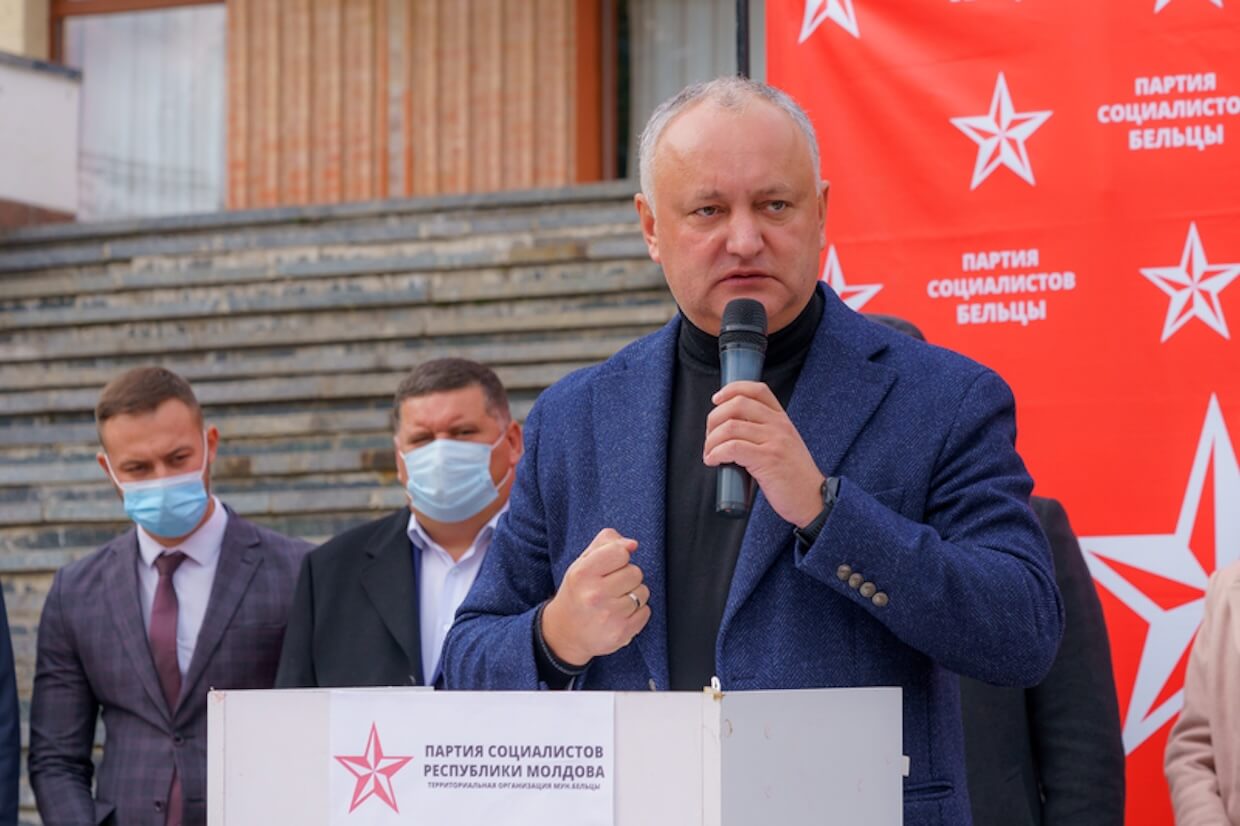
Low Turnout Makes Moldova Vulnerable to Populist Messaging
With voter turnout just above 50%, what does the relative disengagement of a significant portion of the electorate reveal about the legitimacy and durability of PAS’s mandate? To what extent does persistent electoral apathy constrain the prospects for long-term democratic consolidation and weaken the societal foundations of Moldova’s pro-European orientation?
Assoc. Prof. Cristian Cantir: I want to make a quick statistical note first. The 2024 Moldovan Census identified about 2.3 to 2.4 million Moldovans in the country with stable residency. Meanwhile, the electoral rolls from the Central Electoral Commission list close to 300,000 Moldovans abroad, which doesn’t quite capture reality. In fact, there are many more Moldovans who still hold residency but live or work abroad. This makes turnout somewhat harder to assess in Moldova, given the fragmented data we have.
That said, the general premise of the question still holds, because the turnout percentage does indicate a degree of disengagement. This poses a problem for PAS and for Moldova’s pro-European orientation. People who are disengaged—who don’t feel invested in Moldova’s pro-EU path or don’t perceive clear benefits from EU integration—are much more susceptible to populist messaging. In Moldova, such messaging tends to be Eurosceptic and pro-Russian. As a result, these citizens may be more easily mobilized by populist politicians, giving those actors greater institutional power to undermine EU integration.
For this reason, demonstrating the tangible benefits of EU integration to more apathetic groups should be a key part of PAS’s strategy. Otherwise, we may see rising support for populist politicians. A few have already begun to gain visibility—there are two in particular I could highlight—but the broader risk of growing populist appeal is certainly there.
Russia May Be Falling Victim to Its Own Propaganda in Moldova
Observers have described Moldova as a “laboratory” for Russia’s hybrid interference strategies. In your assessment, what does the 2025 electoral cycle reveal about both the adaptive capacities and structural limitations of Moscow’s toolkit of influence? Can we speak of a paradigmatic shift in the Kremlin’s approach, or are we witnessing the persistence of familiar strategies with diminishing returns?
Assoc. Prof. Cristian Cantir: That’s a really good question. The simplest answer is that we don’t know yet, and there’s a reason for that. The 2025 election was marked by greater intensity and a wider range of Kremlin interference efforts. They invested more money, backed more political actors, and became more involved in attempts to stoke violence and protests. Yet none of these efforts proved particularly effective.
There are a couple of points to keep in mind here. First of all, Moldovan law enforcement and the broader institutional response have become more active, dealing more effectively—even compared to 2024—with clear cases of electoral interference. This included vote buying, the use of cryptocurrency to transfer funds, and the use of cash for illegal financing. Another important factor in understanding the Kremlin’s difficulties in Moldova is that, for a long time, Russia had grown accustomed to acting with relative impunity there. Even when pro-European or centrist coalitions were in power, Moldovan institutions and politicians were rarely proactive in curbing Russian influence. At best, they ignored Moscow’s efforts; at worst, pro-Russian politicians openly reinforced them. I think Moscow has been somewhat taken aback by the consistency with which Moldovan institutions have now responded to Russian interference.
So, I don’t know if we are going to see a full shift in the Kremlin’s approach, but I do think there is more re-evaluation and discussion about how it might adjust its strategies. One additional point is that the Kremlin actually knows a great deal about Moldova—more so than many in the West. The problem, however, is that it continues to rely heavily on information fed by pro-Russian politicians, who often promote narratives that are simply inaccurate. For example, the claim by some pro-Russian groups that EU integration is not popular in Moldova is simply not true. It’s difficult to tell whether the Kremlin and its allies are falling victim to their own narratives, which distort their understanding of Moldovan dynamics and render their strategies less effective. That’s something I’ve often thought about, because some of the claims you see in Russian propaganda are so laughable and rudimentary. You start to wonder whether they actually believe them, since they don’t even work effectively as propaganda. That’s how rudimentary they are.
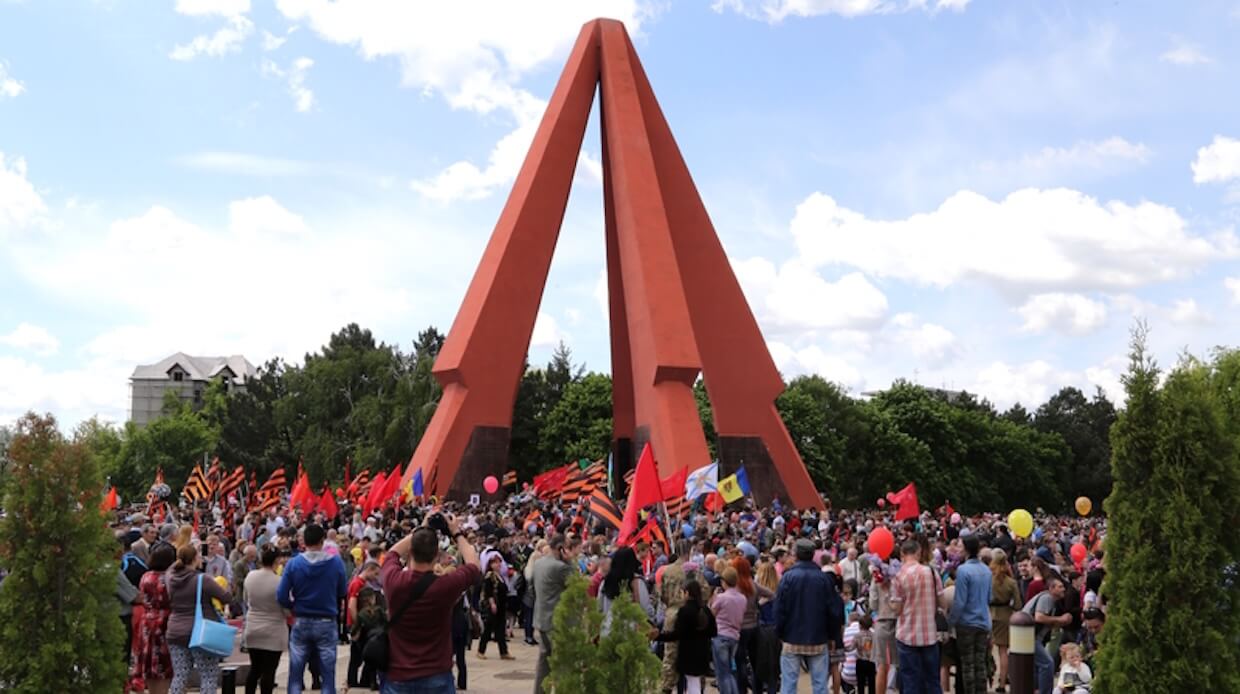
Moldova Now Frames Itself as Belonging in Europe
In the light of your previous work on Moldova’s foreign policy balancing, how would you assess Chisinau’s current capacity to resist Moscow’s strategies of destabilization, particularly given Russia’s reliance on authoritarian-style tactics such as elite capture, patronage networks, and the exploitation of populist narratives?
Assoc. Prof. Cristian Cantir: When it comes to balancing, we’ve seen a noticeable shift. The perception of the EU as a counterbalance to Russia—once more prominent among pro-Russian or centrist groups—was grounded in the idea that Moldova should extract benefits from all its major geopolitical partners. That view has given way to a more cultural and identity-based argument. The ruling pro-European group now frames Moldova as inherently European, emphasizing that the country “belongs in Europe” and should “go home” to Europe.
As a result, the EU is now articulated less as a strategic tool for Moldova’s foreign policy goals and more as a natural place of belonging for Moldovans. Pro-Russian parties still advance the balancing argument, but it has been severely undermined by Russia’s invasion of Ukraine in 2022. They have not substantially re-evaluated or adjusted their rhetoric since then, but the post-2022 context is fundamentally different. Thus, the balancing argument no longer carries the same weight. While it still registers some support in polling data, it is far less compelling from a political standpoint.
With respect to elite capture, the Kremlin is beginning to understand that Moldovan institutions are responding more coherently to Russian threats. Some of its old patronage networks or elite-capture strategies are not working as effectively because Moldovan law enforcement is pushing back. One example of this would be Russia’s attempts to infiltrate Moldovan politics or encourage spying, which the Moldovan Secret Service has been more proactive in addressing. I’m not sure how the Kremlin will deal with this particular problem.
That said, the Kremlin still retains significant power when it comes to the populist narratives, and the vulnerabilities they exploit. Given Moldova’s socioeconomic issues, including high rates of poverty, these vulnerabilities can be easily leveraged by populist politicians, and consequently by pro-Kremlin groups as well.
Odessa Looms Large in Moldova’s Strategic Calculus
What does the Moldovan case tell us about Russia’s evolving approach to influence operations in the post-Soviet space, especially compared to its tactics in Ukraine or Georgia?
Assoc. Prof. Cristian Cantir: One of the key differences between Ukraine and Georgia is that, where Russia lacks either the ability or the immediate interest to engage in military action—as opposed to what it is doing in Ukraine or what it did in Georgia—its influence operations become less effective when faced with strong institutional responses and consistent support from Moldova’s allies. Because direct military threats are not immediate, Moldova has more space to resist Russian influence.
This dynamic is often reflected in discussions by Moldovan politicians about Odessa. Odessa looms large in Moldovan politics, because if the city were to fall, the strategic calculus would change significantly. If Odessa does not fall, and if Ukraine continues to resist the Russian army in southern Ukraine and around Odessa specifically, it will be considerably easier for Moldova to counter influence operations without the constant pressure of an imminent military threat.
Hybrid Warfare Is a Transnational Problem—It Requires a Transnational Response
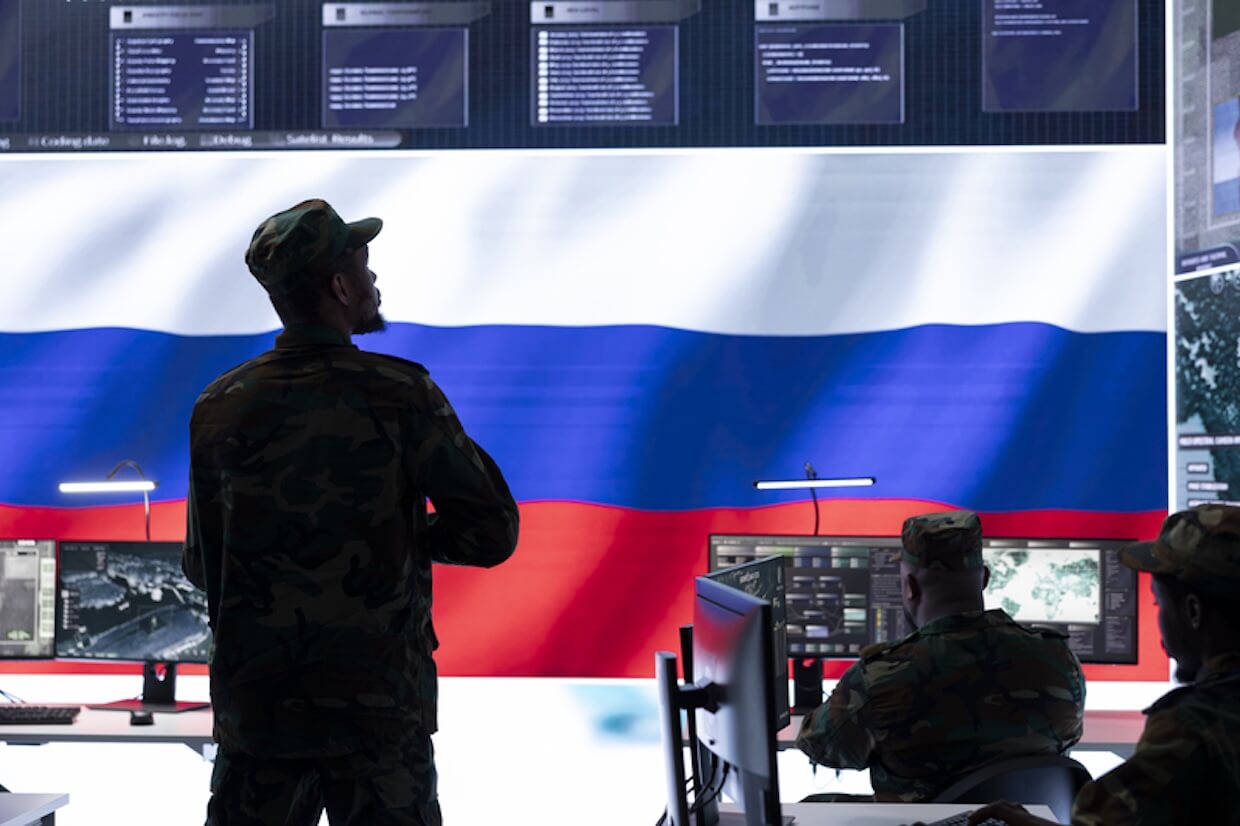
How sustainable is Moldova’s reliance on Western partners for countering hybrid threats, given the country’s domestic vulnerabilities such as corruption, weak institutions, and economic hardship?
Assoc. Prof. Cristian Cantir: That’s a good point. Ideally, you would want a sovereign state with strong institutions, fewer socioeconomic problems, and a consistent fight against corruption. That would give it the capacity to resist Russian influence more effectively without significant outside support. The European Union also needs to focus on those factors—tackling corruption, strengthening institutions, and addressing economic hardship.
At the same time, Moldova’s reliance on Western partners to counter Russian hybrid warfare is unavoidable, because this is not only Moldova’s problem. To the extent that it is a transnational challenge, it requires a transnational and coordinated response. Moldova cannot and should not handle this alone. Long-term, institutionalized cooperation with the EU is essential—both because Russian hybrid attacks extend beyond Moldova and because Moldova’s own capacities remain limited. Even if Moldova had strong governance and robust institutions, it would still need to work closely with the European Union to meet this particular threat.
Polarization in Moldova Is Fluid, Not Fixed
How realistic is Moldova’s aim to achieve EU accession by 2030, given both the demanding structural reforms and potential geopolitical vetoes within the Union, and in what ways might deep internal polarization between pro-European and pro-Russian constituencies undermine the legitimacy of this process by opening space for populist mobilization and authoritarian retrenchment?
Assoc. Prof. Cristian Cantir: Internal geopolitical polarization is a serious problem in Moldova, but it is also important to remember that polarization is a fluid phenomenon. Polling, for instance, used to show much stronger support for integration with Russian projects even 10 or 20 years ago, and much less support for NATO membership. This shows that polarization can shift over time.
The strategy of Moldovan authorities has been to make a compelling economic, or quality-of-life, case for EU integration, even in regions where the political dimension of integration is less popular. In places like Gagauzia and parts of northern Moldova, the aim is to erode polarization by demonstrating the tangible economic benefits of closer ties with the EU. If successful, this could help offset some of the effects of geopolitical polarization by easing tensions.
So, the biggest question isn’t really polarization, but whether pro-EU forces can articulate and illustrate the benefits of EU integration clearly to more people, including those in pro-Russian propaganda bubbles. To a large extent, integration by 2030 is driven more by the speed with which Moldovan authorities can enact reforms, by developments in the Russian invasion of Ukraine, and also by the situation in Transnistria—which we can talk about—and what exactly Moldovan authorities are going to do with that separatist region.
The Cyprus Model Is a Real Option for Moldova
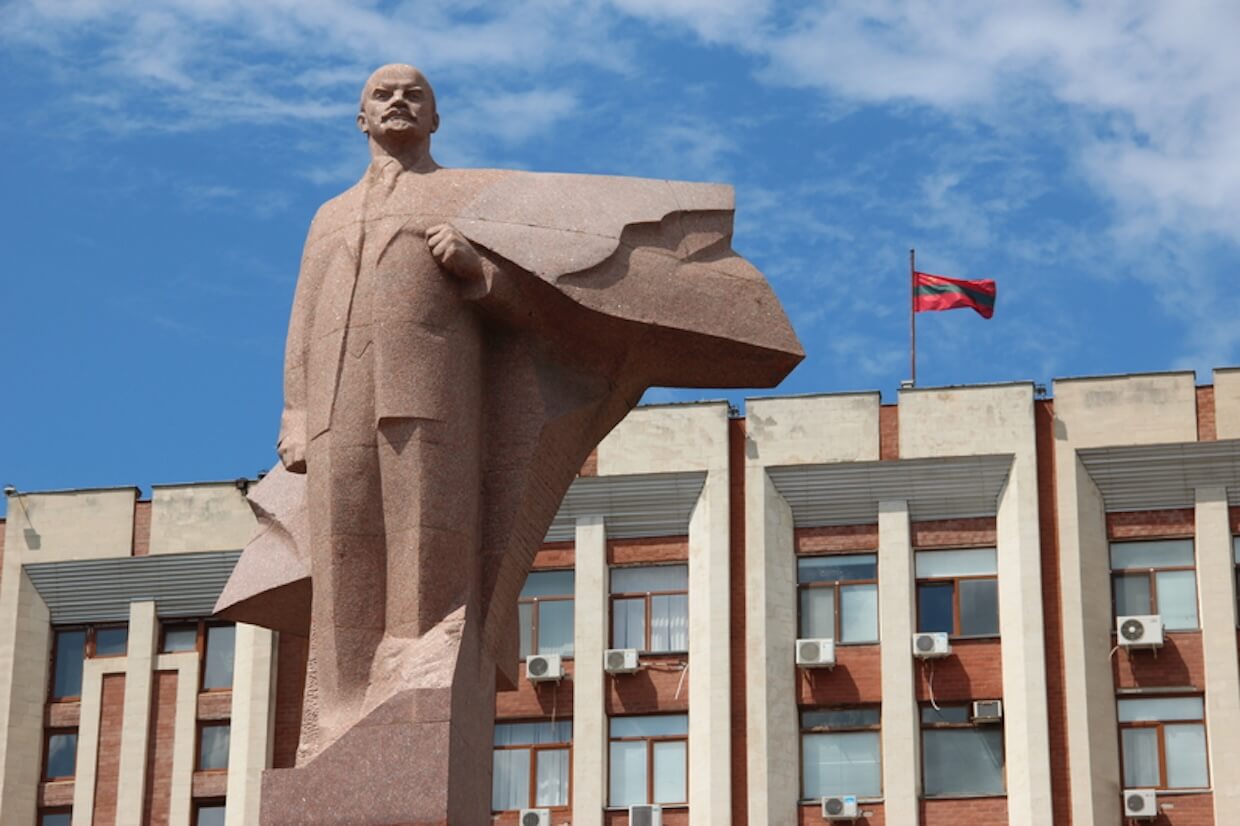
Given the persistence of Russian troops in Transnistria, how does the unresolved status of the region constrain Moldova’s European ambitions and its sovereignty more broadly?
Assoc. Prof. Cristian Cantir: The number of Russian troops in Transnistria isn’t sufficient to threaten Moldova’s European ambitions or its sovereignty. Greater risks could come from a hypothetical mobilization of a large part of the Transnistrian population during a potential conflict, but that scenario carries its own difficulties. Nor does the Russian military presence pose an immediate threat to sovereignty in the sense that Moldova is able to control most of its territory fairly effectively, aside from Transnistria. In that respect, it is not an urgent danger.
The war in Ukraine has also constrained Transnistria’s potentially aggressive orientation, or even its foreign policy toward Ukraine, Moldova, and the EU more broadly. Within Moldova, there is a growing sense that EU integration must move forward and can happen without Transnistria. Moldovan authorities have explicitly stated that it is possible for Moldova to join the EU first, using the Cyprus model. Cyprus is a common example cited by Moldovan officials and has even been echoed by former EU leaders. José Manuel Barroso, for instance, recently affirmed that the Cyprus model is indeed a possibility for Moldova.
At this stage, Chișinău does not view Transnistria as an obstacle to EU integration. Instead, it argues that pre-integration measures demonstrating the economic benefits of EU membership will gradually draw Transnistria closer. If necessary, Moldova can join the EU without Transnistria and then work toward integrating the region into the Union over the longer term.
Populists Give Moscow Veto Power over Moldova’s EU Path
Lastly, Professor Cantir, what scenarios do you consider most plausible for the future of the Transnistria conflict: gradual reintegration under EU auspices, continued limbo, or renewed escalation tied to Russia’s strategic setbacks in Ukraine? And in any of these scenarios, how might populist or authoritarian actors instrumentalize the issue domestically to challenge Moldova’s European orientation?
Assoc. Prof. Cristian Cantir: The most important point to note—the elephant in the room—is that everything depends on how Russia’s invasion of Ukraine unfolds. If Ukraine manages to resist in the south and hold Odessa, then what we are most likely to see, at least in the short term, is the maintenance of the status quo. The EU would continue efforts to trade with, develop, and engage local organizations in Transnistria—essentially trying to connect the region more closely to Europe, with the long-term goal of gradual reintegration. That will be the general orientation, or at least the attempt, always contingent on developments in Ukraine and particularly in Odessa.
When it comes to the question of populist or authoritarian actors instrumentalizing the issue, one of the biggest patterns to watch in the next few years in Moldova is how they frame the argument about the Cyprus model. PAS has argued that Moldova can join the EU without Transnistria first. By contrast, many other actors—including pro-Russian politicians in the Patriotic Bloc, the largest opposition group in Parliament, as well as Alternativa, a centrist, self-defined pro-EU bloc—have insisted that Moldova must not enter the EU without Transnistria. In effect, this position grants Transnistria—and, to some extent, Moscow—veto power over Moldova’s EU integration aspirations.
So, populist politicians and authoritarian actors in Moldova will seek to instrumentalize the Transnistria issue by insisting that the country must not—and cannot—join the EU without first resolving the conflict. This, of course, significantly prolongs the timeline and effectively ties Moldova’s European integration to Moscow’s willingness to settle the dispute.

